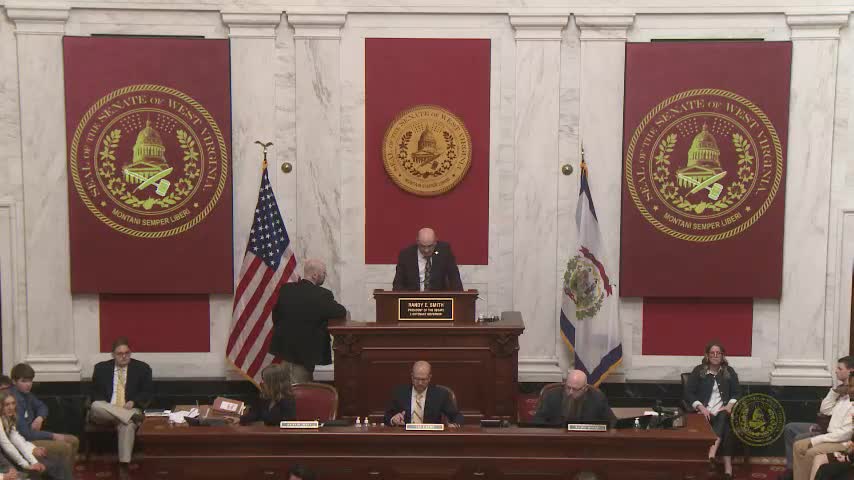Senate approves bill raising penalties and parole floors for homicide-related offenses
Get AI-powered insights, summaries, and transcripts
Subscribe
Summary
The West Virginia Senate passed an engrossed committee substitute for Senate Bill 136, which increases penalty ranges and raises parole-eligibility floors for certain homicide offenses; the measure passed 32–1 with one absent.
The West Virginia Senate on Feb. 24 approved an engrossed committee substitute for Senate Bill 136, which increases penalty ranges for some homicide offenses and raises the minimum time before parole eligibility for those convictions. The bill passed on third reading by a vote of 32 yeas, 1 nay and 1 absent.
Supporters said the measure aligns West Virginia with neighboring states and underscores a victim-centered approach to criminal justice. "I urge passage on this bill because it makes West Virginia consistent with the states that are around us," said the Junior Senator from the 7th, who spoke in favor of the measure.
The bill increases the penalty range for second-degree murder and voluntary manslaughter and raises parole-eligibility floors for those offenses. It also raises the parole eligibility floor for persons sentenced to life, including those sentenced under the state's recidivist statute and for certain first-degree murder convictions. The chair of the Judiciary Committee compared statutory ranges across neighboring states, saying, in part, "In Pennsylvania, first degree murder, death or life in prison to be decided by the jury rather than the judge. Second degree murder is life in prison. ... Ohio has death or life imprisonment for aggravated murder. For murder, it's 15 years to life imprisonment ..." and provided additional comparative detail for Maryland.
Opponents and some questioners warned that increasing penalties without addressing corrections capacity or broader policy goals could exacerbate problems in the state's prison system. The Senator from Marion said the state already has "a system that's been busting at the seams for a long time," and urged consideration of capacity, the cost of incarceration and whether longer terms would advance deterrence or rehabilitation. "We haven't built a new prison for a long time," the senator said, and cautioned against framing criminal justice solely as a budgetary decision.
Senators debating the bill repeatedly referenced both deterrence and public safety as policy goals; supporters emphasized protection for victims and parity with neighboring states, while critics stressed capacity constraints at regional jails and prisons and questioned whether incremental increases in terms would reduce violent crime.
On the third-reading vote, the clerk reported 32 yays, 1 nay and 1 absent; the presiding officer declared the bill passed and ordered the action communicated to the House of Delegates.
Background: The bill reached third reading after committee consideration and an engrossed committee substitute was presented on the floor. The transcript records multiple senators asking about neighboring states' sentencing schemes and expressing concerns about corrections capacity during floor debate.
